By Doug Jacquier
Harley had become stupendously rich (as in Gates, Zuckerberg, Bezos and the like being minor players). His wealth derived from what others threw away. He had invented technology that mined dump sites for plastic and then reconstituted it as oil, a process that no-one had been able to replicate, giving him an oil market share that rivalled OPEC. He’d even invented an ocean plastics scooper vessel that collected all the discarded plastic straws. Its crew revelled in the nickname of the Straw Boaters.
And then he got bored. Harley decided that he needed to take on a far more challenging project, and that’s where the new planet, Exotica, was born. He’d looked into self-sustaining human colonies on other planets but decided they were more fiction than science and they had no credible business model. So he thought why not create a new one much closer, orbiting between the Earth and the Moon?
Building on the core of his existing businesses, he reasoned that other people’s trash can become one man’s treasure. Stage 1 consisted of harvesting space junk. Decades of rocketry, satellites and space stations littered the world’s shared universe close to home, just waiting to collide with newer launchings or plummet to earth with who knew what consequences. Using rare earths mined from Harley’s recycling plants, he designed, built and launched a magnetised roving ‘space garbage truck’ he initially called The Attractor but later popularly shortened to The Tractor. Governments of all persuasions beat a path to his door as his new business model, literally, took hold.
Starting with a basic space platform he dubbed the Enterprise Starship, he quickly grew the volume of Exotica until it began to resemble a giant frisbee. Powered by recycled nuclear waste that governments gratefully handed over for free, the citizens of the world marvelled at the nightly light show of Exotica circling Earth. Multinational corporations paid fortunes for their advertising slogans to be spelled out in the heavens, signalling Stage 2 of Harley’s business model.
Stage 3 involved the human element (or as Harley thought of it in the privacy of his own mind, the ‘Send In The Clowns’ stage). His verticalised supply chain of space shuttles fed into the Grand Exotica Hotel, the eye-watering prices he could charge for hydroponically-grown vegetables and the vegetable-derived T-bone substitutes (not to mention the alcohol) and, of course, water.
Starting from a few initial shipments with the occasional top-up from a shuttle, most guests preferred not to know how much condensation, shower water and (ahem) urine can be recycled almost indefinitely into potable water. And few of them inquired as to the source of the fertiliser for the vegetable pods.
Exotica became the Rolex of the tourism industry. A seemingly endless list of attractions kept guests amused. The Earthset Bar was always packed for the revolving light show that was Earth itself. Older couples would share their score cards from the gravity-free golf course. And, of course, everyone enjoyed chatting with the humanoid staff who could speak (and what’s more make jokes) in any language — and there was no need to tip for the pre-programmed excellent service.
The most popular attraction, though, was the day trip ‘Picnic on the Moon’. People never seemed to tire of being filmed donning those old space suits and climbing down the ladder and declaring ‘one small step for Doris (or Arnold)’, bouncing around in one-sixth g and planting a flag. Of course there would always be the wise guy who’d ask if this was the same set they used for the original fake moon landing.
As Exotica grew into Stage 4, so did its uses — exponentially. A privately operated Dark Side wing was established to house particularly dangerous prisoners under contracts with various governments, including some U.S. states. A premium service was offered for those states that retained the death penalty, although there was no real cost to simply turning off the oxygen in the prisoner’s cell.
The major search engines and multimedia sites established server farms and data transmission dishes on the perimeters.
National Weather Bureaus installed technology that allowed them to predict the weather down to street level.
Eventually Harley achieved Stage 5, ‘Bullet Proof’. His business models had made Exotica into a perpetual motion machine of revenue and profits. No country could afford to sabotage or destroy Exotica because their systems had become entirely dependent on it. Plans were already in place to build Exotica 2 and Exotica 3.
And then came the virus.
It was barely noticeable at first; just the odd glitch in a humanoid here and there. But as it spread, weird occurrences started popping up everywhere in the system. The weather bureau in Egypt started predicting heavy snow at the Pyramids. Prison pod doors began opening spontaneously and inmates began mingling with hotel guests. The urine treatment plant failed and guests were provided with a very different form of orange juice in the morning. People on Earth searching for gardening advice were redirected to porn sites.
Harley and his crew worked frantically to find the virus and fix it, while at the same time denying its existence. After finally having to come clean on its existence, it was down-played as a minor inconvenience and everyone should carry on as normal. It would pass.
But it didn’t.
Came the fateful day that Harley’s previously impregnable server descended into a never-ending loop. He knew it was all over.
Using what was left of the power in the nuclear waste cells, he aimed Exotica beyond the boundaries of the universe. As he was preparing Exotica for its final journey, Harley consoled himself with the idea that someday someone would find Exotica and recycle it for the greater good and immense profit.
Suddenly his video screen sprang to life and a familiar age-lined face said, “Hey, Harley, I hear you’re getting rid of Exotica. I might have a use for it for my new project, ‘Retire on Uranus’. How about it, buddy?”
Harley smiled and said, “Sure, she’s all yours, Elon.”
![]()
About the Author
Doug Jacquier
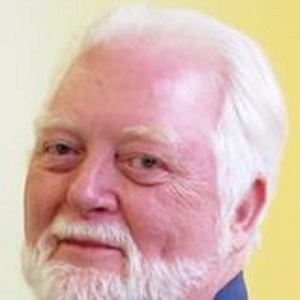 Doug Jacquier writes from the Fleurieu Peninsula in South Australia. He's lived in many places across Australia, including regional and remote communities, and has travelled extensively overseas. His work has been published in Australia, the US, the UK, Canada, New Zealand and India. Published Work | Six Crooked Highways
Doug Jacquier writes from the Fleurieu Peninsula in South Australia. He's lived in many places across Australia, including regional and remote communities, and has travelled extensively overseas. His work has been published in Australia, the US, the UK, Canada, New Zealand and India. Published Work | Six Crooked Highways
Doug's writing meanders amongst various forms of short story, flash fiction, poetry, and non-fiction, from the lunatic to the lucid. For readers prepared to come along for the ride, he likes to make them laugh or cry or groan and, occasionally, make them shake their electronic fists at him. Most of his work has an intention to entertain, even when the subject matter may be at least semi-serious.
He blogs at Six Crooked Highways (wordpress.com).
![]()

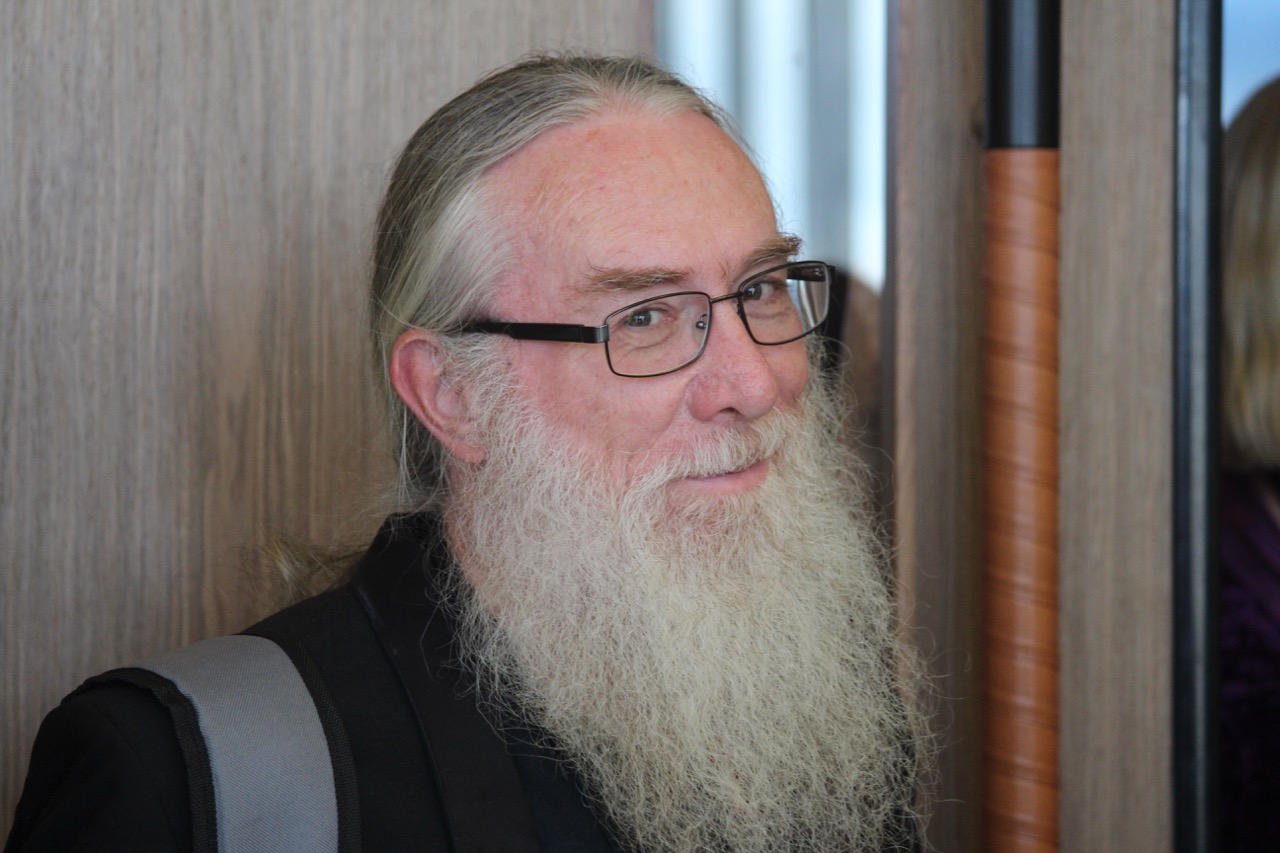





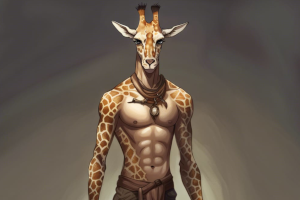

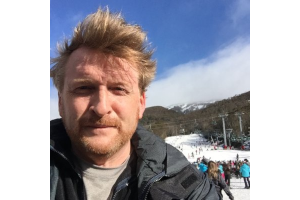

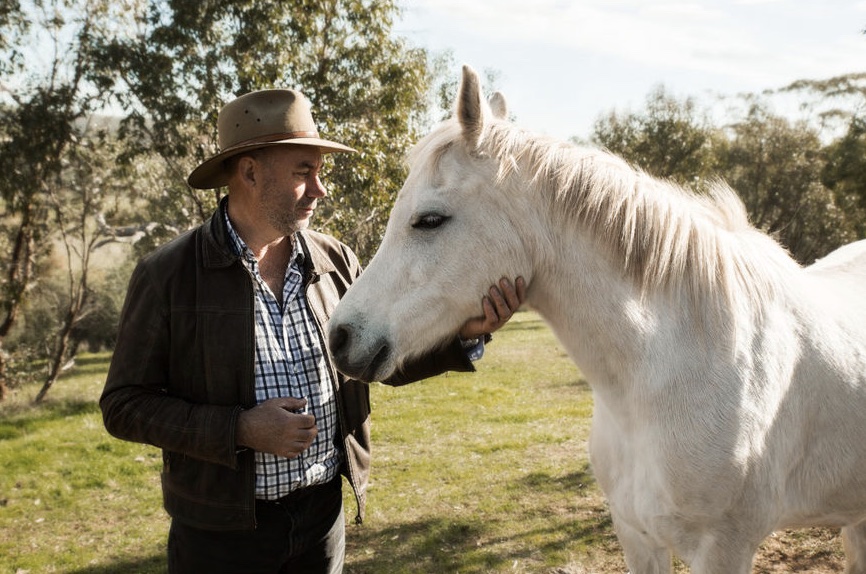


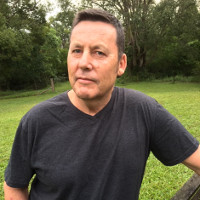 Tim Borella is an Australian author, mainly of short speculative fiction published in anthologies, online and in podcasts.
Tim Borella is an Australian author, mainly of short speculative fiction published in anthologies, online and in podcasts.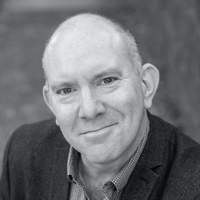 Alistair Lloyd is a Melbourne based writer and narrator who has been consuming good quality science fiction and fantasy most of his life.
Alistair Lloyd is a Melbourne based writer and narrator who has been consuming good quality science fiction and fantasy most of his life. Sarah Pratt is an avid fiction writer and a Marketing Consultant.
Sarah Pratt is an avid fiction writer and a Marketing Consultant. Sarah Jane Justice is an Adelaide-based fiction writer, poet, musician and spoken word artist.
Sarah Jane Justice is an Adelaide-based fiction writer, poet, musician and spoken word artist.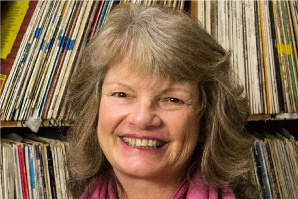 My time at Nambucca Valley Community Radio began back in 2016 after moving into the area from Sydney.
My time at Nambucca Valley Community Radio began back in 2016 after moving into the area from Sydney.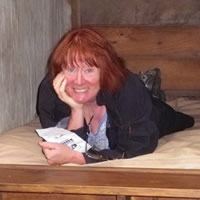 Margaret lives the good life on a small piece of rural New South Wales Australia, with an amazing man, a couple of pets, and several rambunctious wombats.
Margaret lives the good life on a small piece of rural New South Wales Australia, with an amazing man, a couple of pets, and several rambunctious wombats.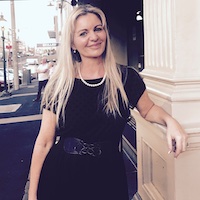 Juliette Cavendish was born in Liverpool UK and is of Welsh and Norwegian heritage. Juliette has an interest in Artificial Intelligence and Quantum Science and writes in both Science Fiction and Contemporary Fiction genres. Juliette was fascinated with space as a
Juliette Cavendish was born in Liverpool UK and is of Welsh and Norwegian heritage. Juliette has an interest in Artificial Intelligence and Quantum Science and writes in both Science Fiction and Contemporary Fiction genres. Juliette was fascinated with space as a
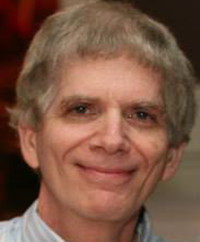 Barry Yedvobnick is a recently retired Biology Professor. He performed molecular biology and genetic research, and taught, at Emory University in Atlanta for 34 years. He is new to fiction writing, and enjoys taking real science a step or two beyond its known boundaries in his
Barry Yedvobnick is a recently retired Biology Professor. He performed molecular biology and genetic research, and taught, at Emory University in Atlanta for 34 years. He is new to fiction writing, and enjoys taking real science a step or two beyond its known boundaries in his Emma Louise Gill (she/her) is a British-Australian spec fic writer and consumer of vast amounts of coffee. Brought up on a diet of English lit, she rebelled and now spends her time writing explosive space opera and other fantastical things in
Emma Louise Gill (she/her) is a British-Australian spec fic writer and consumer of vast amounts of coffee. Brought up on a diet of English lit, she rebelled and now spends her time writing explosive space opera and other fantastical things in Mark is an astrophysicist and space scientist who worked on the Cassini/Huygens mission to Saturn. Following this he worked in computer consultancy, engineering, and high energy research (with a stint at the JET Fusion Torus).
Mark is an astrophysicist and space scientist who worked on the Cassini/Huygens mission to Saturn. Following this he worked in computer consultancy, engineering, and high energy research (with a stint at the JET Fusion Torus).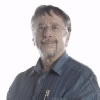 Ed lives with his wife plus a magical assortment of native animals in tropical North Queensland.
Ed lives with his wife plus a magical assortment of native animals in tropical North Queensland. Geraldine Borella writes fiction for children, young adults and adults. Her work has been published by Deadset Press, IFWG Publishing, Wombat Books/Rhiza Edge, AHWA/Midnight Echo, Antipodean SF, Shacklebound Books, Black Ink Fiction, Paramour Ink Fiction, House of Loki and Raven & Drake
Geraldine Borella writes fiction for children, young adults and adults. Her work has been published by Deadset Press, IFWG Publishing, Wombat Books/Rhiza Edge, AHWA/Midnight Echo, Antipodean SF, Shacklebound Books, Black Ink Fiction, Paramour Ink Fiction, House of Loki and Raven & Drake